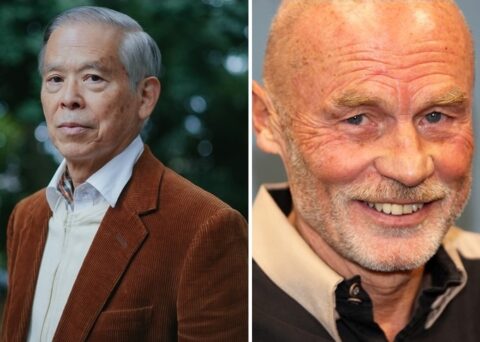
場所
DIJ (access) and online
登録情報
This is a past event. Registration is no longer possible.
DIJ Mailing Lists
Please subscribe below to stay informed about our research activities, events & publications:
Opening to Omnilateralism in an Interpopular World
2024年10月17日 / 18.30 – 20.00 (JST)
Wolfgang Pape, former EU diplomat
Akio Kawato, former Japanese career diplomat
After a century of Western-inspired and hackneyed multilateralism, its much criticized more than 75-year-old stronghold, the UN, needs a new narrative: interpopular omnilateralism. The UN Charter starts with the words “We the peoples …”. Instead of originating in the hardly definable construct of the “nation” and hence being “international”, the UN Charter is rather based on the people, thus it is interpopular from its inception. The proper vehicle to reach this aim of a wider community of people is omnibus – for and by all -, firstly, to widen the way for input of more ideas and good practices by non-Western people, and secondly, to include non-state actors as legitimate stakeholders in global governance. Almost all governments nowadays claim democracy, but respect for its principles is falling. Democracy must adapt to each level of governance, from local, national and regional to global. More direct democracy may suit the directly informed local stage. The higher the stage of governance and the wider its impact, the more expertise and responsibility with all stakeholders is needed to reach the common global good, i.e. omnilaterally.
Wolfgang Pape is a freelance writer, lecturer and lawyer living in Brussels. He served in the European Commission for 30 years, including postings to Tokyo. In Brussels, he was in charge of the ‘Asia Strategy’ and contributed to the ‘White Paper on Governance’. He studied law and economics at the universities of Marburg and Genève, spent two years at Osaka Gaidai and Kyoto University, as well as subsequently at Harvard for his Dr iuris in Freiburg in 1981. His lectures and publications in English, German, Japanese and French range from worldwide cultural diversity to trade issues and inclusive global governance, for which he coined the term “Omnilateralism”, the title of his latest book (http://omnilateralism.blogspot.com).
Akio Kawato (M.A., Harvard) is the only Japanese career diplomat who witnessed all the major historical events in the USSR and later Russia, such as the demise of Brezhnev or the fall of the Soviet Union. Mr. Kawato also served in Europe, the USA and Central Asia. He extensively traveled in Asia as well. As a free-lance commentator, he now contributes columns for Newsweek Japan and presides over his own blog “Japan and World Trends” (www.japan-world-trends.com) designed for international exchange of views among intellectuals (in Japanese, English, Chinese and Russian languages). Currently his new book In Search of the Lost Modern Age is forthcoming with Fujiwara-Shoten. The book analyzes how Western “modern” values and economies arose with references to Chinese and Islamic history.